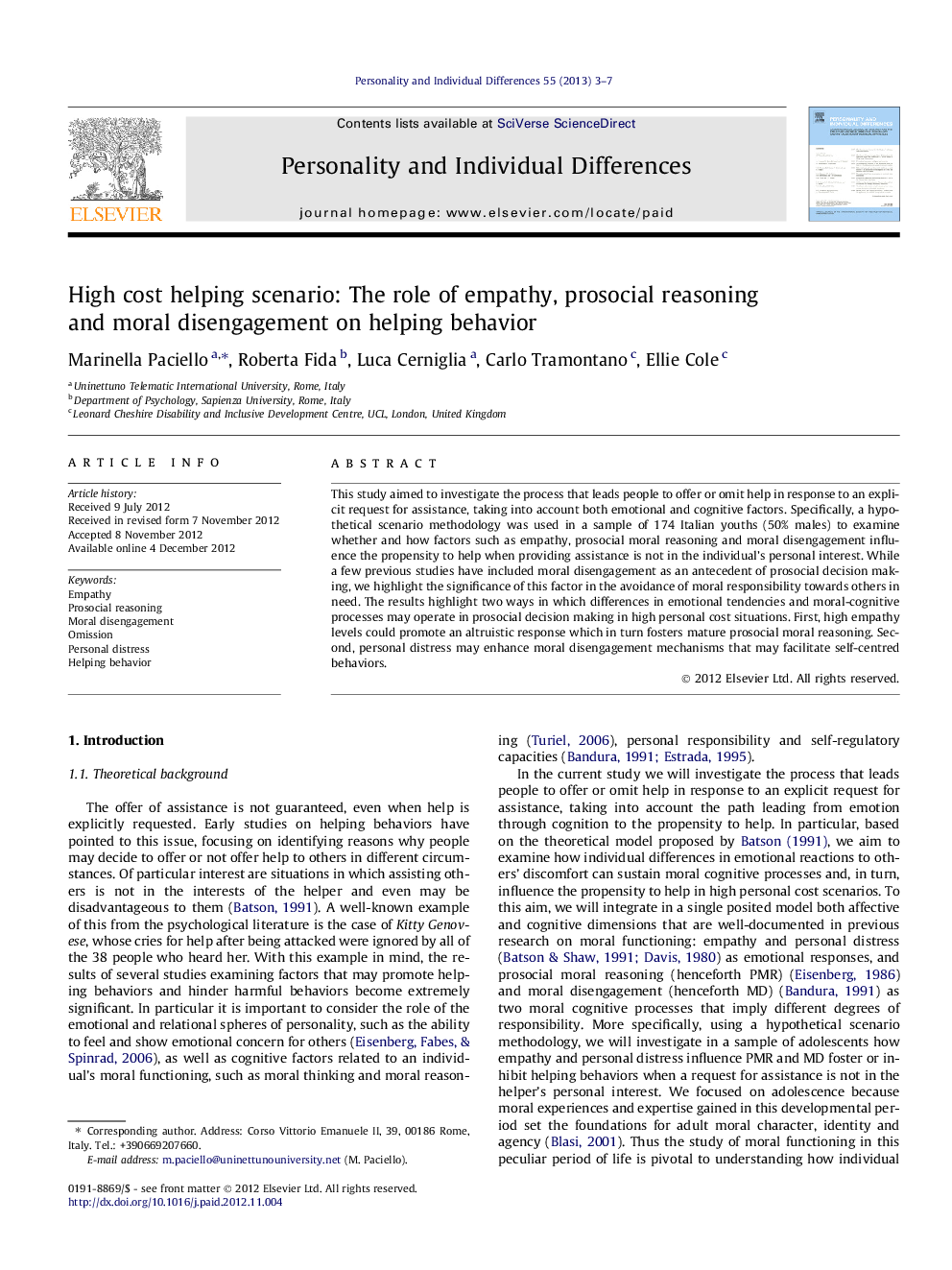| Article ID | Journal | Published Year | Pages | File Type |
|---|---|---|---|---|
| 890873 | Personality and Individual Differences | 2013 | 5 Pages |
This study aimed to investigate the process that leads people to offer or omit help in response to an explicit request for assistance, taking into account both emotional and cognitive factors. Specifically, a hypothetical scenario methodology was used in a sample of 174 Italian youths (50% males) to examine whether and how factors such as empathy, prosocial moral reasoning and moral disengagement influence the propensity to help when providing assistance is not in the individual’s personal interest. While a few previous studies have included moral disengagement as an antecedent of prosocial decision making, we highlight the significance of this factor in the avoidance of moral responsibility towards others in need. The results highlight two ways in which differences in emotional tendencies and moral-cognitive processes may operate in prosocial decision making in high personal cost situations. First, high empathy levels could promote an altruistic response which in turn fosters mature prosocial moral reasoning. Second, personal distress may enhance moral disengagement mechanisms that may facilitate self-centred behaviors.
► Higher personal distress and moral disengagement promote self-centered behaviors. ► We examine how emotional reactions to others’ discomfort influence moral cognition. ► Personal distress fosters the activation of moral disengagement mechanisms. ► Moral disengagement inhibit the propensity to help in moral dilemma scenario. ► Higher empathy hinders moral disengagement and promotes helping behavior.
